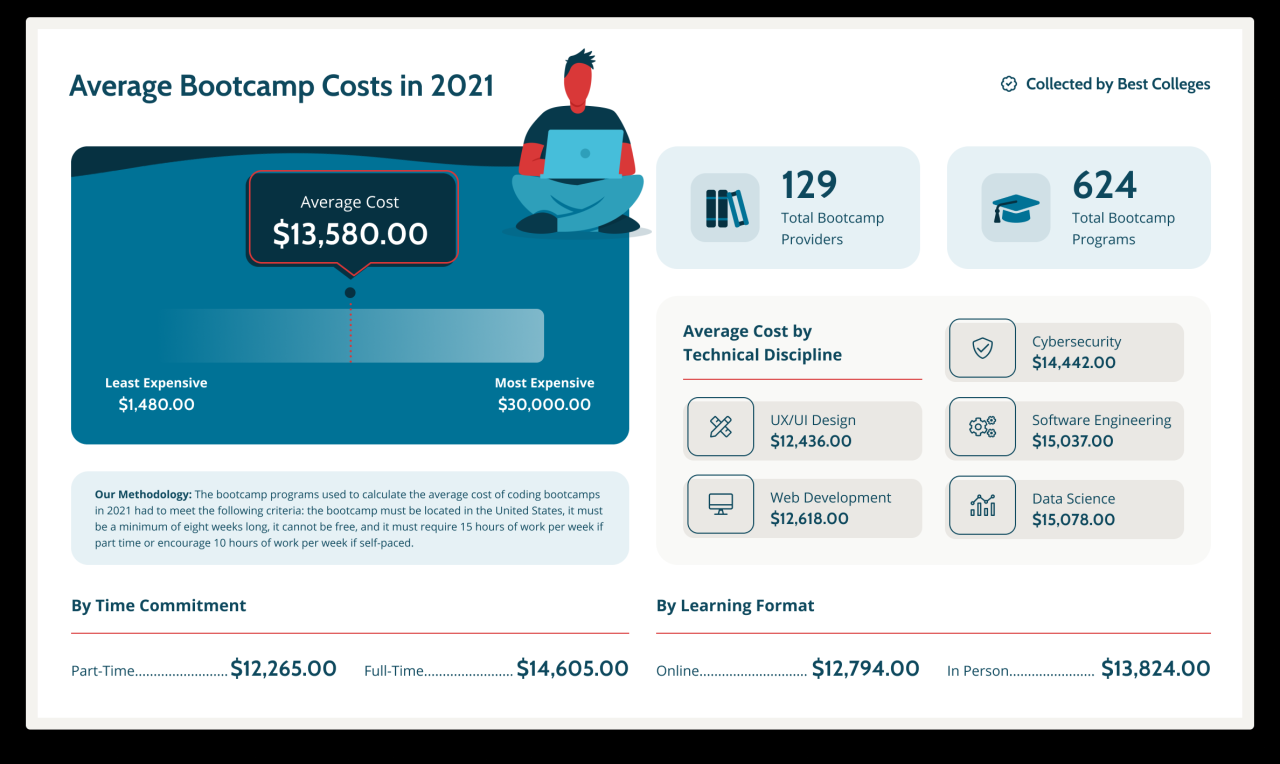GI Bill Eligibility for Coding Bootcamps: Does The Gi Bill Pay For Coding Bootcamp

Using your GI Bill benefits to fund a coding bootcamp can be a valuable pathway to a new career. However, understanding the eligibility requirements and the specific processes involved is crucial. This section details the specifics of using your GI Bill for coding bootcamp tuition and associated expenses.
Eligibility Requirements for Using GI Bill Benefits
Eligibility hinges on your veteran status and the specific chapter of the GI Bill under which you’re operating. Generally, you must be eligible for GI Bill benefits and the bootcamp must meet specific criteria. These criteria often include accreditation or approval from a recognized body, a defined curriculum, and demonstrable job placement assistance. The Department of Veterans Affairs (VA) maintains a list of approved programs, though this list is not exhaustive, and individual bootcamps may still be eligible even if not explicitly listed. Crucially, the bootcamp must be a recognized educational institution providing vocational training.
Types of Coding Bootcamps Covered
The VA does not discriminate against specific coding languages or specializations. Bootcamps offering training in various programming languages (such as Java, Python, JavaScript, C++, etc.), web development, data science, cybersecurity, and other related fields are potentially eligible, provided they meet the broader criteria for approval. The focus is on the quality of the education and demonstrable job-market relevance of the training provided. Bootcamps that focus on niche skills, like game development or specific software engineering specializations, may also be covered.
Required Documentation for Application
The application process usually requires submitting various documents. These commonly include a Certificate of Eligibility (COE) for GI Bill benefits, official transcripts from previous educational institutions (if applicable), proof of acceptance or enrollment from the chosen coding bootcamp, and a copy of the bootcamp’s curriculum. The VA may also request additional documentation depending on the specific circumstances. The bootcamp itself will often provide guidance on the necessary paperwork.
Comparison of Eligibility Criteria Across GI Bill Chapters
Eligibility criteria can vary slightly depending on the GI Bill chapter you are using (Chapter 33, Post-9/11 GI Bill; Chapter 30, Montgomery GI Bill; Chapter 31, Vocational Rehabilitation and Employment); however, the core requirement of attending an approved educational institution generally remains consistent. Chapter 33 (Post-9/11 GI Bill) generally offers the most comprehensive coverage and is frequently used for coding bootcamp funding. Specific benefit amounts and payment procedures will differ according to the chapter. It’s essential to contact the VA or your designated Veterans Affairs representative to determine your specific eligibility under your chosen chapter.
Application Process Flowchart
The application process can be visualized as a flowchart. It begins with verifying your eligibility for GI Bill benefits. Next, you research and select an approved or eligible coding bootcamp. Then, you apply to the bootcamp and obtain acceptance. Afterward, you submit your application to the VA, including all required documentation. The VA then processes your application and, upon approval, funds are released to the bootcamp or directly to you (depending on the payment method). Finally, you attend the bootcamp and complete your training. This is a simplified representation, and individual steps may vary based on specific circumstances and the chosen bootcamp.
Approved Bootcamp Programs

Finding a coding bootcamp approved for GI Bill benefits requires careful research. The Department of Veterans Affairs (VA) maintains a database of approved educational programs, and it’s crucial to ensure your chosen bootcamp is on that list before you enroll to avoid unexpected financial burdens. This section will explore how to identify approved bootcamps, the criteria for approval, and a comparison of some examples.
Does the gi bill pay for coding bootcamp – Unfortunately, providing a comprehensive list of *all* currently approved coding bootcamps is impractical due to the constantly changing landscape of program approvals and the sheer number of institutions. The VA’s approval process is dynamic, with programs being added and sometimes removed. Therefore, relying on a static list would quickly become outdated and potentially misleading.
Verifying Bootcamp Approval Status
The most reliable method for determining a bootcamp’s GI Bill approval status is to directly consult the Department of Veterans Affairs (VA) database. This database is regularly updated and provides the most accurate information. The search function usually allows you to search by program name, location, or other relevant criteria. You should always independently verify any information found elsewhere against this official source.
Criteria for Bootcamp Approval
The VA employs specific criteria to evaluate and approve coding bootcamps for GI Bill funding. These criteria generally focus on the quality of the program’s curriculum, the institution’s financial stability, and the overall effectiveness of its training methods. Factors considered often include: the program’s length, the instructors’ qualifications, the availability of job placement assistance, and the program’s overall success rate in placing graduates into relevant jobs. Specific details regarding the weighting of these criteria are not publicly available but are rigorously applied to ensure the quality of the education veterans receive.
Curriculum and Specializations Comparison, Does the gi bill pay for coding bootcamp
Approved coding bootcamps offer diverse curricula and specializations. For example, some might focus on front-end web development (HTML, CSS, JavaScript), while others might specialize in back-end development (Python, Node.js, Java), data science, or mobile app development (iOS, Android). The specific skills taught and the depth of coverage vary considerably between programs. Some bootcamps may offer more project-based learning, while others emphasize theoretical concepts. A thorough comparison of curricula from several approved bootcamps is essential to align your chosen program with your career goals. Directly comparing course syllabi and speaking with program representatives will help you make an informed decision.
Searching the VA Database for Approved Programs
To search the VA database, you’ll typically need to visit the official VA website (the specific URL may change; searching “VA education benefits” on a search engine will usually provide the correct link). The website will have a search function specifically designed to locate approved educational institutions and programs. You’ll likely need to provide information such as the program name, location, or state. The results will indicate whether a particular bootcamp is approved for GI Bill benefits and often provide additional details about the program’s approval status and associated benefits. The results are usually presented in a list format, allowing you to easily compare various options.
Potential Limitations and Alternatives

Utilizing the GI Bill for coding bootcamp tuition presents several advantages for veterans, but it’s crucial to understand potential limitations and explore alternative funding options to ensure a comprehensive financial plan. Not all bootcamps are created equal, and the GI Bill’s coverage may not always be sufficient to cover the full cost of your education.
While the GI Bill can significantly reduce the financial burden of attending a coding bootcamp, several factors can impact the extent of its coverage. Understanding these limitations allows veterans to proactively plan and secure additional funding if needed.
GI Bill Coverage Limitations
The GI Bill’s coverage varies depending on the specific chapter (e.g., Chapter 33, Post-9/11 GI Bill; Chapter 31, Vocational Rehabilitation and Employment) and the individual veteran’s eligibility. For instance, the Post-9/11 GI Bill offers a monthly housing allowance, tuition assistance, and book stipends, but the amount of tuition assistance might not completely cover the cost of a coding bootcamp, especially those with higher tuition fees. Some bootcamps might also have additional fees not covered by the GI Bill, such as application fees, lab fees, or certain software costs. Additionally, the length of the bootcamp program can influence the total amount of GI Bill benefits received; shorter programs might not utilize the full benefit period. Finally, state-specific regulations might affect the amount of tuition covered by the GI Bill.
Situations Where the GI Bill Might Not Fully Cover Costs
Several scenarios can lead to insufficient GI Bill coverage for coding bootcamp expenses. High tuition fees at premium bootcamps frequently exceed the maximum tuition assistance provided by the GI Bill. Veterans attending intensive, accelerated programs may find their benefits exhausted before program completion, necessitating supplementary funding. Unexpected expenses, such as relocation costs or living expenses exceeding the housing allowance, can also create a funding gap. Finally, if a veteran chooses a bootcamp not approved for GI Bill benefits, they will be responsible for the entire tuition cost.
Alternative Funding Options
For veterans facing financial shortfalls, several alternative funding options exist. These options can supplement the GI Bill or serve as primary funding sources if GI Bill benefits are insufficient or unavailable.
Comparison of Financing Methods
Choosing the right financing method depends on individual circumstances and risk tolerance. Below is a comparison of common options:
| Financing Method | Pros | Cons |
|---|---|---|
| Personal Savings | No interest, no debt | May require significant savings, limits program choices |
| Loans (Federal, Private) | Access to larger sums, flexible repayment options (some plans) | Accumulates interest, potential for high debt burden |
| Scholarships and Grants | No repayment required, can significantly reduce costs | Competitive application process, limited availability |
| Employer Sponsorship | Tuition assistance or reimbursement, potential job placement | Requires securing employment before or during the program |
Resources for Alternative Funding
Finding alternative funding sources requires proactive research. Several resources can assist veterans in securing additional financial support.
This list is not exhaustive and availability may vary by location and individual circumstances. Always verify eligibility requirements and application processes directly with the respective organizations.
- The U.S. Department of Veterans Affairs (VA): Provides information on GI Bill benefits and other veteran support programs.
- Your State’s Veterans Affairs Department: Offers state-specific veteran benefits and resources, including potential scholarship opportunities.
- Coding Bootcamps Themselves: Many bootcamps offer financing options, scholarships, or income share agreements (ISAs).
- Private Lending Institutions: Offer student loans specifically for vocational training or online education.
- Nonprofit Organizations: Several organizations provide scholarships and grants to veterans pursuing higher education, including tech-related fields.


Tim Redaksi